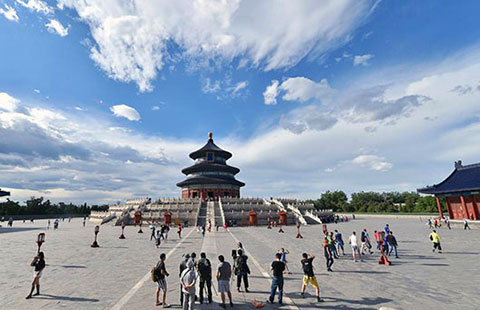Spying claims denied; academic out on bail
By Zhao Yinan (China Daily) Updated: 2015-07-31 07:45
Allegations of economic espionage leveled by the United States against Chinese universities and government-backed companies are completely groundless, the Foreign Ministry said on Thursday.
It was commenting after a Chinese college professor facing spying charges in the US was granted bail.
Zhang Hao, a Tianjin University professor specializing in acoustics, was arrested in May after arriving at Los Angeles International Airport to speak at a conference.
Insiders said Zhang is in good physical condition and will stay at a friend's house in an arrangement that has been approved by a court, but will not be allowed to leave Northern California.
Experts said Zhang's bail agreement indicates a softening of the US stance ahead of President Xi Jinping's state visit to the country in September.
Foreign Ministry spokesman Hong Lei denied that Chinese government-backed companies were carrying out industrial espionage.
He called for the US to stop the "irresponsible and groundless accusations", and instead help to boost Sino-US ties.
Zhang, 36, is accused of stealing sensitive information about acoustic technology from his former US employer, Skyworks Solutions, in Massachusetts to help Chinese universities and government-backed companies.
Two other professors from the university and three other Chinese citizens are also facing similar charges, but they are in China and have not been arrested.
The controversial technology, usually used in smartphones and tablets to filter signals intended for the user, also has military applications.
Apart from his university work, Zhang also runs a company that makes equipment using this technology.
In an open letter in May, Fan Liping, Zhang's wife, insisted that her husband is innocent, and described him as a research fellow with a withdrawn nature who has "worked intensively for scientific achievements".
Zhang was granted bail after the US Federal Bureau of Investigation alleged that the Chinese government was behind the majority of economic espionage cases aimed at US companies.
Wang Hongwei, a national security professor at Renmin University of China, said he sees Zhang's bail as a softening of the US position.
"US politicians are good at taking the neutral course - avoiding angering voters in favor or against China," he said.
Wang said most of the US charges brought against Chinese intellectuals in espionage cases are groundless and an overreaction to China's rising economic and political clout.
Lei Ming, a media officer at Tianjin University, said the institution will work with Zhang's attorneys to safeguard his rights.
Zhang Min in Tianjin contributed to this story.
zhaoyinan@chinadaily.com.cn
(China Daily 07/31/2015 page4)
- Delegation salutes Tibet anniversary
- Officials are told to act as anti-graft watchdogs
- Great Wall safeguarded in united action
- Vice minister pledges more efforts to improve air quality
- Beijing’s efforts to control air pollution start to pay off
- China's military committed to reform
- Netizens rip singer over baby photos
- Central govt's growing support for Tibet
- Monument to be built on Tianjin blast site
- China and Russia seal raft of energy deals







